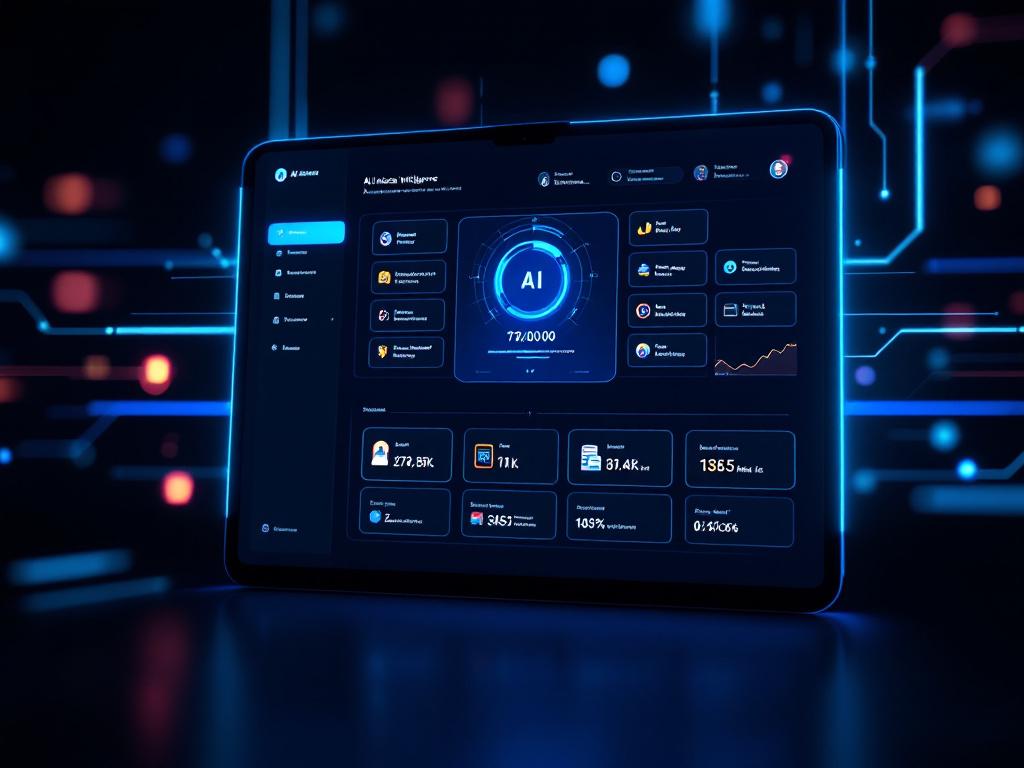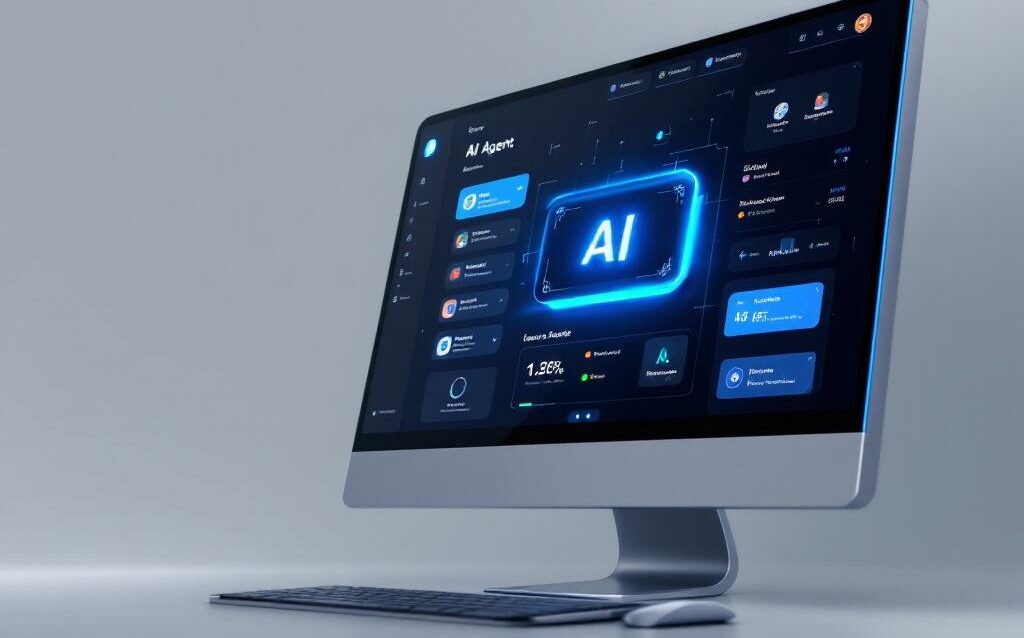Key Takeaways: Selecting the Perfect AI Agent for Business Success
When choosing an AI agent for your business in 2025, prioritize platforms that align with your specific operational needs—whether that’s autonomous agents for complex, dynamic environments or scripted agents for straightforward, repetitive tasks requiring strict consistency. The ideal AI agent should offer robust integration capabilities, strong security features including data encryption and OAuth controls, and deployment flexibility as APIs, webhooks, or chatbots. Consider crucial factors like complexity requirements, data privacy measures, ease of use, seamless integration with existing systems, and scalability potential to ensure your selected platform can grow alongside your business needs.
Top-performing AI agents deliver measurable business value through task automation, personalized customer experiences, and enhanced decision-making capabilities. Leading solutions now offer advanced features like bulk work processing, scheduled agent jobs, comprehensive monitoring, and collaborative team functionality. Organizations implementing these AI agents have achieved impressive results—from Storytel’s successful deployment of automated support in over 13 languages to Bank of America’s chatbot Erica handling account monitoring and budgeting advice, significantly reducing response times. The right AI agent can transform your business operations by combining specific task precision with broader adaptive capabilities to address your unique challenges.
Understanding AI Agents: Core Features and Capabilities
AI agents are specialized software systems designed to execute specific tasks based on predefined rules and instructions. Unlike agentic AI, which operates with broader autonomy and adaptability to make independent decisions, AI agents function as rule-driven assistants that excel at handling precise, structured workflows within controlled environments. These task-oriented systems process inputs according to programmed logic and deliver consistent, predictable outputs without deviating from their encoded parameters.
The fundamental capabilities of AI agents include executing repetitive tasks with high precision, following established protocols, and operating within clearly defined boundaries. While they cannot self-improve beyond their training data or adapt dynamically to unexpected scenarios, they provide businesses with reliable automation for specific functions like customer support ticket routing, invoice processing, or data entry verification.
| AI Agents | Agentic AI |
|---|---|
| Rule-based execution | Autonomous decision-making |
| Task-specific focus | Adaptive problem-solving |
| Predictable outcomes | Dynamic learning capability |

Top Integration and Security Features in Enterprise AI Agents
Modern enterprise AI agents must deliver seamless integration with diverse business systems. Leading solutions connect effortlessly with platforms like Salesforce and SharePoint, enabling real-time data exchange and workflow automation across departments. Robust API support, standardized connectors, and multi-agent orchestration ensure AI agents can unify operations, aggregate insights, and scale efficiently.
- Direct integration with major SaaS applications (e.g., Salesforce, SharePoint)
- API-first design for extensibility and cross-platform workflow automation
- Support for multi-agent coordination and shared context management
- Centralized governance and policy-based data controls
Security is non-negotiable for enterprise AI adoption. The best AI agents enforce enterprise-grade encryption for data in transit and at rest, meet HIPAA and GDPR compliance standards, and incorporate privacy-by-design principles. Features such as automated audit trails, access controls, and regular risk assessments help mitigate threats and ensure regulatory alignment, protecting sensitive business and customer data.
« AI agents that unify integration and compliance frameworks enable organizations to deploy intelligent automation while maintaining strict data privacy and regulatory confidence. »

Comparing AI Agent Performance: Automation and Decision-Making
AI agent performance metrics directly impact business productivity, with top-performing agents achieving task completion rates above 90% and accuracy rates exceeding 95%. Organizations implementing AI agents have seen productivity improvements of up to 40%, with generative AI potentially adding $2.6-4.4 trillion annually to the global economy. These metrics span operational efficiency (response time, completion rate), customer satisfaction (sentiment analysis, retention), and business outcomes (cost efficiency, revenue growth).
| Performance Metric | Target Benchmark | Business Impact |
|---|---|---|
| Task Completion Rate | >90% | Reduced human intervention |
| Response Time | <3 seconds | Improved user experience |
| Error Rate | <5% | Higher reliability |
The most effective AI agents excel at automating complex workflows while making data-driven decisions that enhance business operations. Small and medium enterprises (SMEs) stand to gain significantly from AI adoption, potentially closing the 47% productivity gap with larger organizations. By monitoring key metrics like response quality, hallucination rates, and resource usage, businesses can ensure their AI agents deliver consistent value while optimizing costs through efficient token usage and processing time management.
## Selecting the Right AI Agent Builder for Your Enterprise Needs
Choosing the optimal AI agent framework demands careful consideration of your enterprise’s specific requirements and technical capabilities. The leading contenders—CrewAI, LangGraph, and OpenAI Swarm—each offer distinct advantages for different business scenarios. CrewAI provides an intuitive, role-based approach ideal for businesses seeking simplicity and straightforward implementation, making it perfect for companies with limited technical resources or those focusing on research-oriented applications. LangGraph, with its sophisticated graph-based architecture, offers superior flexibility and scalability for complex, interconnected workflows, making it the preferred choice for engineering teams building enterprise-grade applications with conditional logic and dynamic state management.
When evaluating these frameworks, consider your organization’s specific workflow requirements, technical expertise, and scalability needs. For enterprises prioritizing ease of use and quick deployment, CrewAI delivers a beginner-friendly experience with structured pipelines and role-based execution. Conversely, organizations requiring robust state management and complex decision trees will benefit from LangGraph’s advanced orchestration capabilities and directed acyclic graph implementation. The right choice ultimately depends on whether your enterprise needs simple, linear workflows (CrewAI) or complex, highly tunable systems (LangGraph) that can grow with your business demands.
| Framework | Best For | Key Strength |
|---|---|---|
| CrewAI | Beginners, research teams | Intuitive role-based design, simple implementation |
| LangGraph | Engineers, complex workflows | Advanced state management, high scalability |
| OpenAI Swarm | Production environments | Strong tracing capabilities, minimal learning curve |
Conclusion
Selecting the right AI agent for your business is a critical step toward achieving operational excellence and gaining a competitive edge. By focusing on core capabilities, robust integration, enterprise-grade security, and measurable performance outcomes, organizations can ensure their AI investments deliver real value. A well-chosen AI agent streamlines workflows, automates complex processes, and enables data-driven decisions—transforming both customer experiences and internal efficiency.
Ultimately, success hinges on aligning your choice with specific business goals, infrastructure needs, and compliance requirements. With the right features and a thoughtful approach to implementation, AI agents stand ready to redefine how your business operates in the digital era.
Frequently Asked Questions
Q: What are AI agents, and how do they differ from chatbots?
AI agents are advanced tools that analyze data, interact, strategize, and execute tasks autonomously, often without direct user input. Unlike chatbots, AI agents are not limited to conversational tasks and can integrate deeply into business processes to automate systems and make decisions.
Q: What features should I look for when selecting an AI agent for my business?
Key features to consider include integration capabilities with existing systems, robust security measures, automation capabilities, and decision-making abilities. Ensure the agent aligns with your business objectives and can handle specific tasks effectively.
Q: How do AI agents improve business operations?
AI agents improve business operations by automating repetitive tasks, providing personalized service recommendations, and enhancing decision-making processes. They can handle customer support in multiple languages, detect fraud, optimize inventory, and more.
Q: What are the challenges of implementing AI agents in a business?
Challenges include ensuring alignment with business strategy, technical debt, integration with existing systems, and ethical considerations like data privacy and bias. Continuous human oversight and investment in AI expertise are necessary.
Q: How do I measure the ROI of AI agents in my business?
Measure ROI by tracking increases in efficiency, sales, and customer satisfaction. Also, consider the reduction in operational costs and the ability to redirect resources to more strategic tasks.
Q: What types of AI agent builders are available, and how do I choose the right one?
There are various AI agent builder platforms available, each specializing in different features and industries. Choose a platform that aligns with your business needs, size, and operational goals by comparing their key features and implementation considerations.

